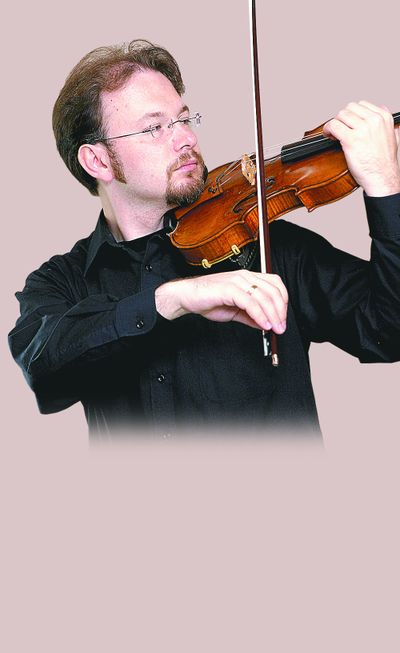Symphony mixes Bloch, Korngold, Stravinsky pieces
‘Brilliance & Virtuosity’ will be staged Saturday, Sunday at the Fox

Spokane Symphony decided to title this weekend’s concerts “Brilliance and Virtuosity.”
This certainly sums up the qualities needed to perform all the pieces on the program: The Three Jewish Poems of Ernest Bloch (1913), the Suite from “Petrushka,” composed in 1911 by Igor Stravinsky and revised in 1947, and the Violin Concerto in D major Op. 35 by Erich Wolfgang Korngold. Each one presents exceptional difficulties to both orchestra and soloist.
The Bloch calls for a host of coloristic effects, demanding much from all the choirs of the orchestra.
The Stravinsky was deemed unplayable at the time of its composition, due to the complexity of its rhythms and its demands that several instruments expand their capabilities beyond what then was considered possible.
The Korngold Concerto was composed with a performer in mind who was, and still is, regarded as the greatest in the history of the instrument: Jascha Heifetz, who gave the piece its premier performance and recording.
Another, even more suitable name for the program would be that which Salvador Dali gave his most famous painting, “The Persistence of Memory.” The three pieces all continue into the 20th century musical standards and assumptions that held sway in the previous century, only to be famously swept away or vastly altered: the use of a consistent tonal center, sensuous melody, and musical pictorialism.
The piece that cast all of these honored traditions into disuse and disrepute was written by Stravinsky only two years after “Petrushka,” in 1913, the same year in which Bloch wrote his Three Jewish Poems: “The Rite of Spring.” “Rite” carried Stravinsky on to superstardom, while creating a musical backwater in which composers such as Bloch and Korngold languished (along with Rachmaninoff, Barber, et.al.).
To Mateusz Wolski, however, concertmaster of the Spokane Symphony and soloist in these performances of the Korngold concerto, such criticisms and disputes are contrary to the value of music, and to his personal goals as an artist.
For Wolski, musical performance is a conversation, the goal of which is to engage deeply the emotions of the participants, he said. This echoes the sentiments of Eckart Preu, the orchestra’s music director, who has said, “If music does not speak to my emotions, I have absolutely no interest in it.”
In his effort to connect emotionally with the audience, and with the other musicians on the stage, Wolski said he studies the score until he can locate a narrative or pictorial core that gives meaning to the work. Without that core, in he said, the conversation would simply be gibberish.
Those fortunate enough to attend the concerts this weekend will be treated to “brilliance and virtuosity” aplenty, but, if Wolski and his colleagues are successful, they will receive the much dearer gift of emotional communion.